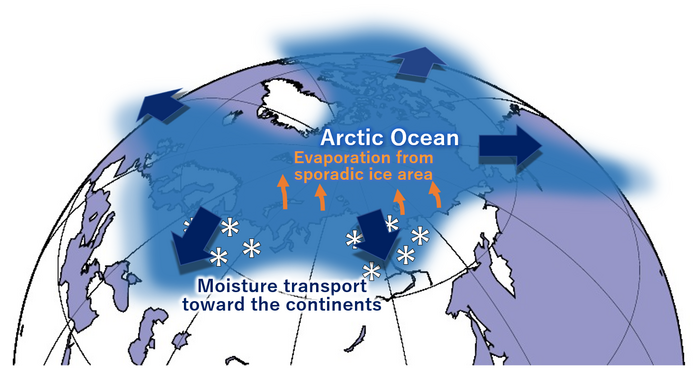The greater amount of water that evaporates from the Arctic Ocean due to global warming ends up further south, increasing snowfall across northern Europe and Asia in late autumn and early winter.
This was stated by a new study led by the Japanese University of Hokkaido, which has reanalysed the world's meteorological data for the last 55 years.
The results obtained, published in the journal npj Climate and Atmospheric Science, will make it possible to make much more accurate seasonal forecasts for extreme weather events, since these anomalous snowfalls constitute the alarm bell for phenomena such as heat waves.
It seems a paradox that, in recent decades, snow cover in some areas of northern Eurasia has increased.
Still, snow is a form of water: global warming increases the amount of moisture in the atmosphere, and therefore the amount and likelihood of rain and snow.
Understanding where exactly moisture comes from and how it is produced and transported is crucial for more accurate weather forecasting and better understanding how the climate will evolve.
Researchers led by Tomonori Sato have developed a new computer model based on global data from the last 55 years, which has made it possible to follow the path made by humidity for much greater distances than before and, therefore, better understand the underlying mechanism .
The results show that the evaporation of water from the Arctic Ocean has increased over the past four decades and that the greatest changes have occurred in the seas north of Siberia.
The study authors warn that, since the Arctic Ocean is doubly sensitive to rising global temperatures, evaporation and its consequences on northern Eurasia will become even more pronounced in the coming years.






